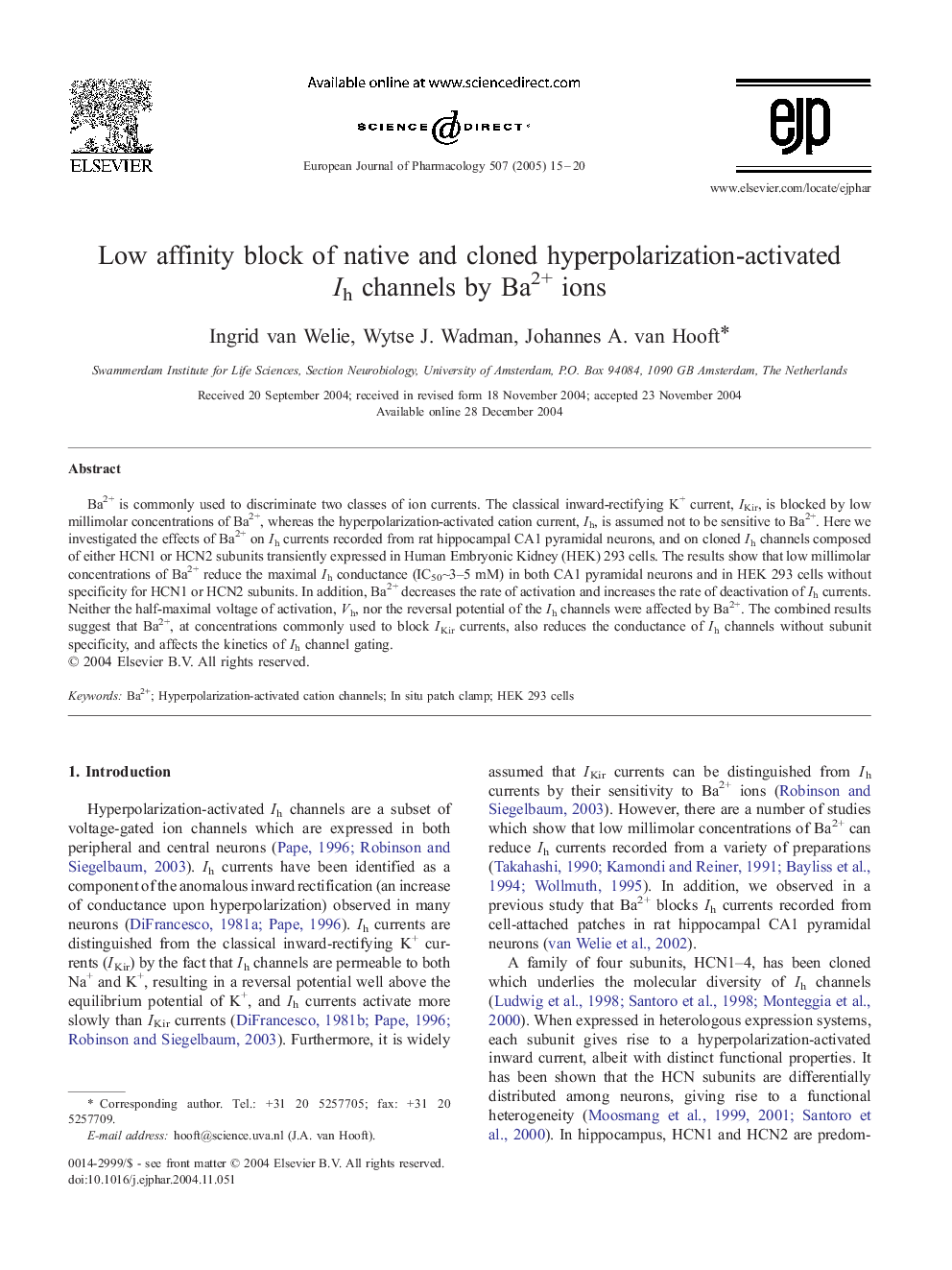| Article ID | Journal | Published Year | Pages | File Type |
|---|---|---|---|---|
| 9921551 | European Journal of Pharmacology | 2005 | 6 Pages |
Abstract
Ba2+ is commonly used to discriminate two classes of ion currents. The classical inward-rectifying K+ current, IKir, is blocked by low millimolar concentrations of Ba2+, whereas the hyperpolarization-activated cation current, Ih, is assumed not to be sensitive to Ba2+. Here we investigated the effects of Ba2+ on Ih currents recorded from rat hippocampal CA1 pyramidal neurons, and on cloned Ih channels composed of either HCN1 or HCN2 subunits transiently expressed in Human Embryonic Kidney (HEK) 293 cells. The results show that low millimolar concentrations of Ba2+ reduce the maximal Ih conductance (IC50â¼3-5 mM) in both CA1 pyramidal neurons and in HEK 293 cells without specificity for HCN1 or HCN2 subunits. In addition, Ba2+ decreases the rate of activation and increases the rate of deactivation of Ih currents. Neither the half-maximal voltage of activation, Vh, nor the reversal potential of the Ih channels were affected by Ba2+. The combined results suggest that Ba2+, at concentrations commonly used to block IKir currents, also reduces the conductance of Ih channels without subunit specificity, and affects the kinetics of Ih channel gating.
Keywords
Related Topics
Life Sciences
Neuroscience
Cellular and Molecular Neuroscience
Authors
Ingrid van Welie, Wytse J. Wadman, Johannes A. van Hooft,
